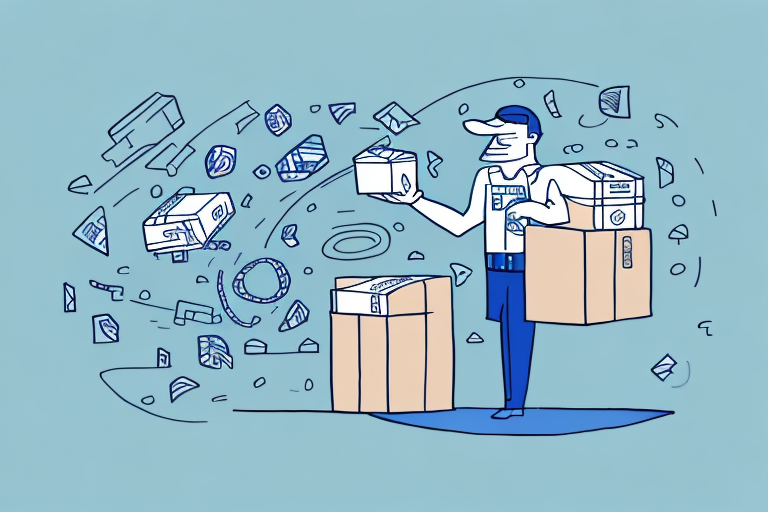Understanding the Role of a Delivery Contractor
A delivery contractor is an independent professional responsible for transporting packages, goods, and other items from one location to another. Operating across various industries and regions, delivery contractors offer a flexible alternative to traditional shipping companies, catering to both individual and business clients.
Key tasks include:
- Picking up and dropping off items
- Organizing and managing inventory
- Communicating effectively with clients
- Ensuring safe and timely deliveries
Delivery contractors play a crucial role in the logistics and shipping industry, especially with the rise of e-commerce and on-demand delivery services.
Benefits of Becoming a Delivery Contractor
Choosing a career as a delivery contractor comes with several advantages:
- Flexibility: Work on your own schedule and select the jobs that fit your lifestyle.
- Higher Earnings Potential: Set your rates and increase income by acquiring more clients or offering premium services.
- Personal and Professional Growth: Develop skills in communication, organization, and time management while navigating different areas.
- Independence: Operate as your own boss, making decisions that directly impact your business success.
According to the Statista report, the gig economy, including delivery contracting, has seen significant growth, providing ample opportunities for income and career development.
Qualifications and Skills Required
Essential Qualifications
- Valid driver's license and a clean driving record
- Reliable vehicle suited for deliveries
- Appropriate insurance coverage
Key Skills
- Communication Skills: Effectively interact with clients and manage expectations.
- Time Management: Efficiently plan routes and schedules to ensure timely deliveries.
- Organizational Skills: Keep track of multiple deliveries and manage inventory.
- Physical Fitness: Handle packages of varying sizes and weights, often requiring lifting and carrying.
Registering and Setting Up Your Business
Steps to Register
- Conduct market research to assess demand for delivery services in your area.
- Register your business with relevant government agencies, obtaining necessary licenses and permits.
- Secure insurance coverage for your vehicle and business operations.
- Develop a comprehensive business plan outlining your target market, competition, and pricing strategy.
- Create a marketing and sales strategy to attract and retain clients.
- Establish an invoicing and payment system to streamline transactions.
For more detailed guidance, refer to the U.S. Small Business Administration.
Understanding Legal Requirements
Compliance with legal regulations is paramount. This includes:
- Obtaining the necessary business licenses and permits
- Adhering to traffic laws and safety regulations
- Ensuring proper handling and transportation of goods, including any hazardous materials
- Understanding labor laws related to independent contractors
The IRS guidelines provide comprehensive information on the legalities of operating as an independent contractor.
Finding and Managing Clients
Attracting Clients
- Online Marketing: Utilize websites, social media, and online advertising to reach potential clients.
- Networking: Attend industry events and join local business groups to build connections.
- Partnerships: Collaborate with local businesses and online marketplaces to expand your client base.
Establishing Relationships
Building strong client relationships involves:
- Providing reliable and consistent service
- Maintaining open and clear communication
- Responding promptly to client needs and feedback
- Offering loyalty programs or discounts for repeat business
Building trust with your clients will lead to long-term partnerships and referrals.
Setting Competitive Rates
Determining the right pricing strategy is essential for attracting clients while ensuring profitability. Consider the following:
- Research competitor rates in your area to understand the market standard.
- Factor in your expenses, including vehicle maintenance, insurance, and operational costs.
- Offer tiered pricing packages or discounts for bulk deliveries to cater to different client needs.
- Regularly reassess and adjust your rates based on service demand and cost changes.
According to Zippia, delivery drivers' average earnings vary based on location and experience, highlighting the importance of setting competitive yet sustainable rates.
Building a Reliable and Efficient Delivery System
Technology and Tools
- Implement GPS tracking systems to monitor vehicle locations and optimize routes.
- Utilize delivery management software or mobile apps for tracking orders and managing schedules.
Optimizing Delivery Routes
Efficient route planning reduces travel time and costs. Tools like Google Maps or specialized logistics software can assist in designing optimal routes.
Handling Emergencies
Establish protocols for unexpected issues such as vehicle breakdowns, traffic delays, or adverse weather conditions to minimize disruptions.
Scaling Your Delivery Contracting Business
Expanding Operations
- Add more vehicles to increase delivery capacity.
- Hire additional staff or subcontractors to manage a larger volume of deliveries.
Diversifying Services
- Offer additional services such as warehousing, fulfillment, or specialized deliveries (e.g., medical supplies).
- Partner with other businesses to provide comprehensive logistics solutions.
Financial and Infrastructure Analysis
Before scaling, evaluate your financial health and infrastructure to ensure you have the necessary resources and systems to support growth.
Overcoming Common Challenges
Delivery contractors often encounter challenges such as:
- Unpredictable costs related to vehicle maintenance and fuel
- Managing time and logistics efficiently
- Dealing with difficult clients or high stress levels
Strategies to overcome these challenges include:
- Maintaining a detailed budget and monitoring expenses closely
- Adopting effective time management techniques and utilizing technology
- Building resilient and transparent relationships with clients
Continuous learning and adaptability are key to navigating the competitive landscape of delivery contracting.
Success Stories of Delivery Contractors
Many delivery contractors have built thriving businesses from the ground up. For example, Jane Doe started with a single vehicle and expanded to a fleet of trucks, partnering with major retailers to provide reliable delivery services. Her success is attributed to her commitment to excellent customer service and strategic marketing efforts.
Another inspiring story is John Smith, who leveraged technology to streamline his delivery operations, allowing him to handle a high volume of orders efficiently. His innovative approach earned him a strong reputation and a loyal client base.
These success stories highlight the importance of dedication, strategic planning, and continuous improvement in achieving business growth as a delivery contractor.
Conclusion: Is Becoming a Delivery Contractor Right For You?
Becoming a delivery contractor offers numerous benefits, including flexible hours, independence, and the potential for significant earnings. However, it also demands hard work, dedication, and a strong commitment to customer service.
If you possess excellent organizational skills, effective communication abilities, and a passion for logistics and transportation, pursuing a career as a delivery contractor could be a rewarding choice. With the right approach and strategies, you can build a successful and sustainable delivery contracting business.






















